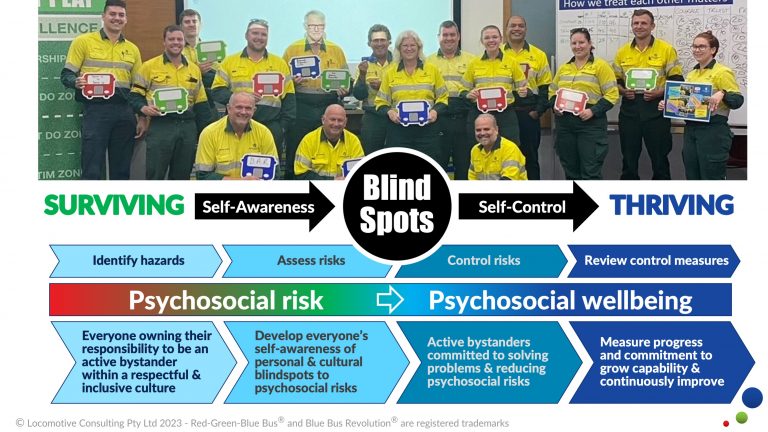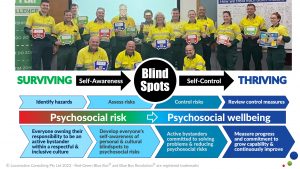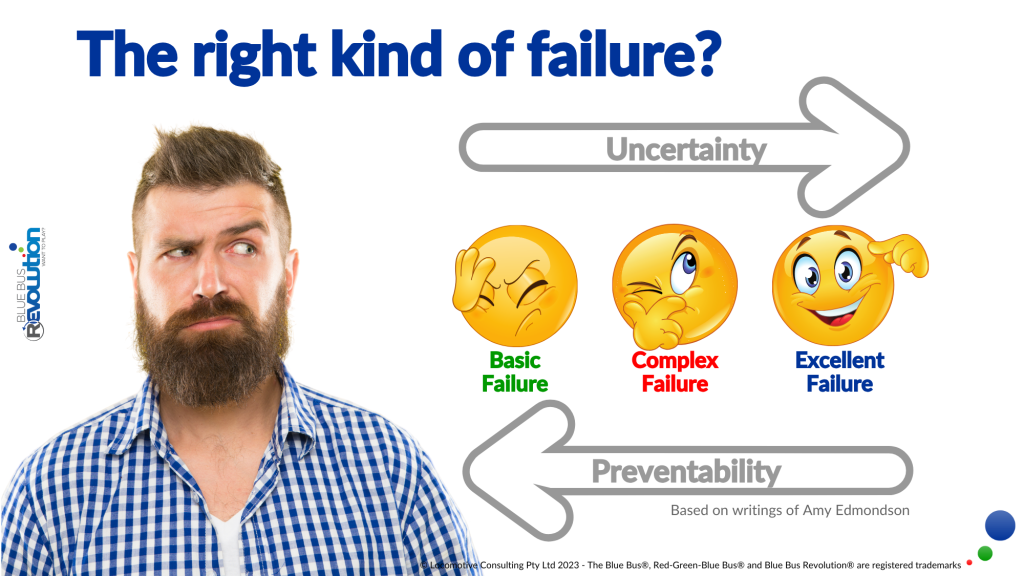Under WHS laws, Australian employers are obliged to proactively manage psychosocial risk as they must any other workplace risk: identify hazards, assess their risk, control the risk and review these controls. Employees have an equal obligation to support the employer & comply with the controls.
The challenge we see when we apply this ‘closed systems’ risk management thinking to psychosocial risk is two fold. Firstly, the breadth of potential psychosocial hazards captured by WHS codes of practice is incredibly broad, encompassing everything from work demands, job design, levels of employee support, how change is effected, supervisory practices and how people treat each other. Secondly, these hazards don’t exist in a static environment – they arise in the thousands of every minute interactions that occur between individuals, between teams and between individuals & their work; and they are constantly flexing & changing with the business cycle and changes in business models, technology and customer expectations.
Organisations are an open web of humans relationships that are inherently complex & messy. While employers can’t avoid their obligations to control psychosocial risk, our fear is that this will drive managers towards Red Bus control that will never deliver better than dispirited Green Bus compliance. This is the very opposite of psychosocial wellbeing.
On The Blue Bus™ we believe the best defence for protecting employees from psychological injury is to build a robust Blue Bus culture, an inclusive culture of active bystanders taking responsibility for their work and how they relate, and to take ownership of change.
Contact us today to explore how The Blue Bus™ can take your organisation from surviving to thriving.











